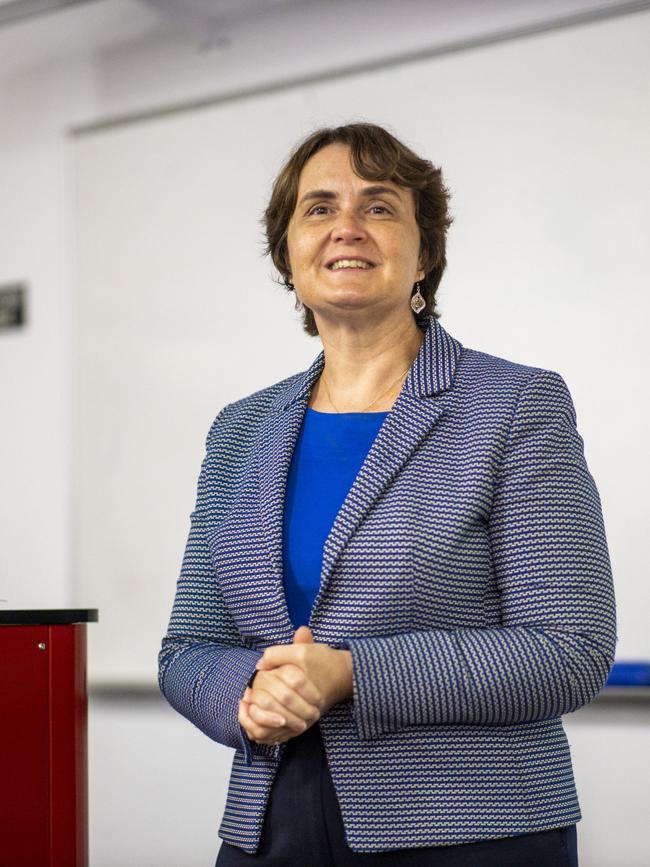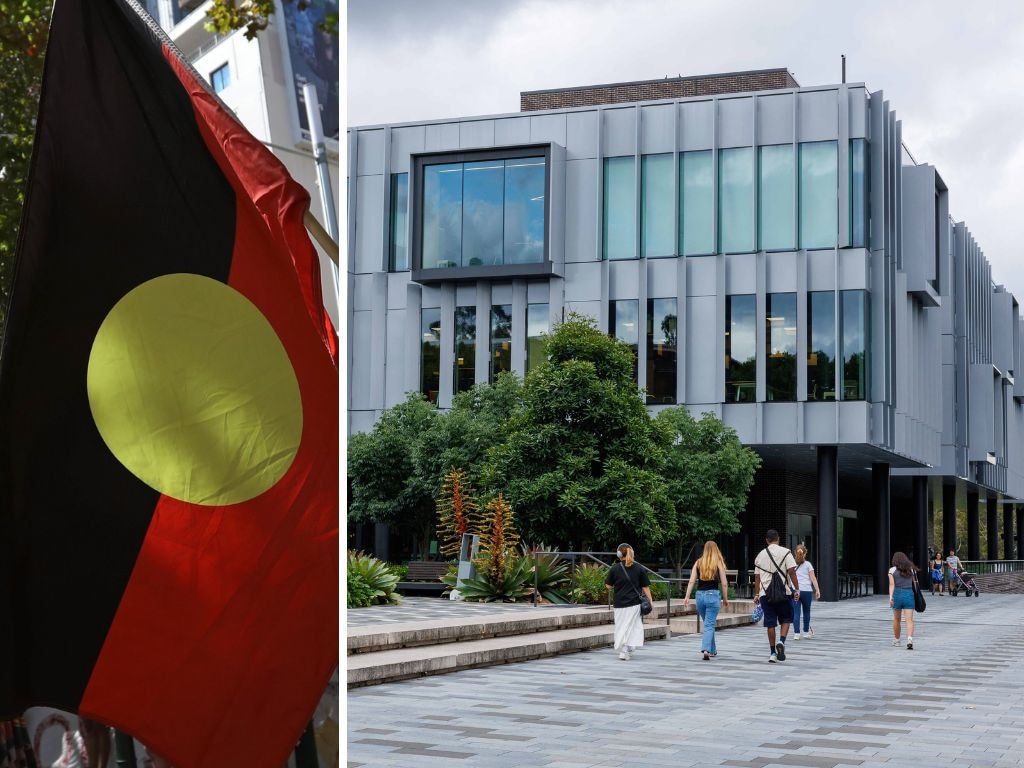Griffith University subject to privacy, discrimination claims
Griffith University has been forced to pay $10,000 to a PhD student who had been critical of voice architect Megan Davis, after a professor shared the student’s personal information and described him as a ‘f..kwit’.

A Queensland university has been forced to pay thousands of dollars to a PhD student who had been critical of Indigenous voice architect Megan Davis, after one of its professors shared the student’s personal information and described him with an expletive slur.
Griffith University is at the centre of three legal claims lodged by political science PhD candidate Joe Stella, who has accused the university of intentionally excluding him from an Indigenous economic symposium due to his conservative political views.
He also claims Griffith has a “systemic cultural problem” following revelations the vice-chancellor was privately concerned the university might not appear to be supporting freedom of speech.
Griffith undertook a misconduct investigation into Mr Stella in 2022 following complaints that he was using his Twitter account to criticise Professor Davis, independent senator Lidia Thorpe, former Indigenous Australians minister Linda Burney and law professor Eddie Synot during the Indigenous voice referendum.
The identities of those who complained about Mr Stella’s social media presence are unknown. The Australian understands the complainants are not people Mr Stella tweeted about.

Mr Stella in the posts suggested Professor Davis should receive a “refresher” on the Constitution, and referred to Indigenous Australians as “Aborigines” in a tweet calling for Ms Burney to resign.
In a separate post, he called Senator Thorpe an “ignorant hypocrite” after she swore an oath to “coloniser” Queen Elizabeth in federal parliament.
“Having loudly attacked the monarch who presided over more than 50 decolonisations as a ‘coloniser’, Senator Thorpe then obediently recited the correct oath,” Mr Stella wrote.
“Never get between a slactivist and $200,000 a year.”
The investigation, helmed by Griffith Business School research dean Christopher Fleming, resulted in a warning letter being sent to Mr Stella, but no formal allegations being made.
“I strongly suggest that you avoid engaging in similar conduct in the future as the university is committed to fostering the wellbeing of staff and students and expects communications to be with courtesy, acceptance and respect at all times including via social media,” Professor Fleming wrote in the letter.
“Any recurrence may result in misconduct proceedings being taken against you under the university’s student misconduct policy.”
But a freedom of information request lodged by Mr Stella after the investigation concluded revealed Professor Fleming forwarded the warning letter – which included Mr Stella’s home address – to the people who had complained about him.
Professor Fleming in a separate email thread forwarded correspondence from Mr Stella to a redacted email recipient and referred to Mr Stella as a “f..kwit”.
Mr Stella late last year won a legal action taken against the university in relation to these breaches, and was awarded $10,000, which he said included aggravated damages due to the derogatory slur made by Professor Fleming.
The FOI request also uncovered emails that appeared to show Professor Fleming attempting to have an unnamed student – who Mr Stella believes to be him – barred from attending a symposium on Indigenous economic development.

The emails appear to show the organiser of the event changing the criteria for attendance after Mr Stella registered for the event, to ensure only Indigenous students or PhD students researching Indigenous welfare attended.
Mr Stella was later told he was not permitted to attend the symposium “due to limited funding and capacity”.
In a separate discrimination action against Griffith over the symposium concerns, Mr Stella alleges Professor Fleming contacted one of the organisers to “recommend or direct that I not be invited” in response to Mr Stella’s Twitter use.
“The conduct of Fleming and his colleagues in excluding me from an event hosted by the university that would have assisted in my training as a researcher was clearly less favourable treatment,” Mr Stella wrote in the discrimination complaint to the Queensland Civil and Administrative Tribunal.
“Indeed, it constituted a secret punishment for the lawful political activity the subject of the (Twitter) complaint.”
The university has claimed the criteria to attend the event was not changed to purposely exclude Mr Stella’s attendance.
After Mr Stella complained to vice-chancellor Carolyn Evans about the symposium in early 2023, Griffith general counsel Dayna Field wrote back, saying she did not accept “that you were discriminated against because you were not enabled to participate”.
“The criteria required participants to be a First Nations person or to be completing a PhD on First Nations research and welfare,” she wrote.
“You did not meet these criteria. The criteria were not changed or implemented to purposely exclude your participation.
“Rather, you did not meet the selection criteria that was decided upon. I consider that the selection criteria were reasonable given the focus of the symposium and in line with the general exemptions provided for in discrimination legislation.”
The outcome of the discrimination claim is not yet known. Mr Stella has taken a further action for alleged privacy breaches, which is also unresolved.
The FOI request also uncovered an email written by Professor Evans to the head of the government and international relations school, Juliet Pietsch, discussing the complaints against Mr Stella and raising concerns that the university might be seen to “not look as though” it supports freedom of speech.

“I think that asking Joe not to use Griffith identifying hashtags is probably reasonable but I think that we do need to be careful not to look as though we are saying that certain views can’t be expressed,” she wrote.
“We would obviously prefer the views to be expressed with civility and with a focus on ideas rather than people but until we cross a line into defamation, hate speech etc that is something that we counsel but don’t enforce.
“Unfortunately, this can lead to tension, particularly with groups like Indigenous staff and students who can find themselves targeted disproportionately in these debates.”
Mr Stella told The Australian the email pointed to systemic issues within Griffith University.
“My broader concern with all this is that it’s not just a bunch of academics who made a couple of bad choices or mistakes or jumped the wrong way in a crisis,” he said. “It all points to a serious systemic problem with unorthodox viewpoints at the university.”
Neither Professor Fleming nor Professor Evans responded to The Australian’s request for comment.
“Given these are matters before the court, Griffith University will not be commenting on this issue,” a media spokesperson said.






To join the conversation, please log in. Don't have an account? Register
Join the conversation, you are commenting as Logout